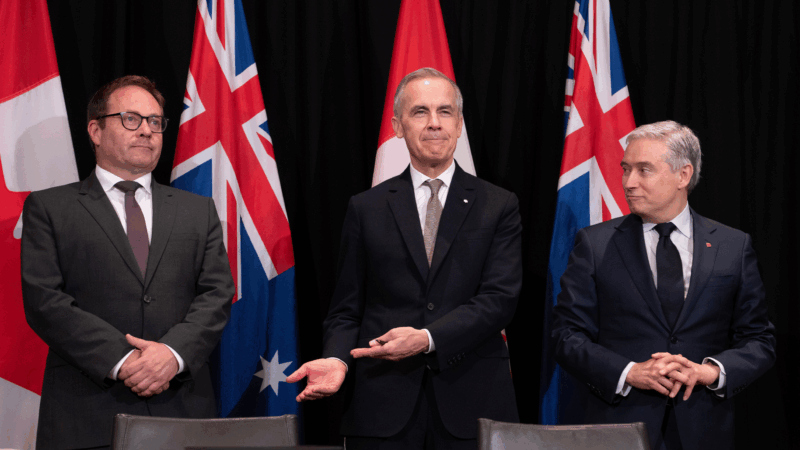Alabama Attorney General’s 1976 Letter Told KKK Off In 3 Short Words
In 1970, shortly after being elected Attorney General of Alabama, Bill Baxley reopened the 16th Street Church bombing case – a racially motivated act of terrorism that resulted in the deaths of four African-American girls at Birmingham’s 16th Street Baptist Church in 1963. Baxley’s commitment to the case attracted much hostility, particularly from local Klansmen, and in 1976 he received a threatening letter of protest from white supremacist Edward R. Fields -founder of the “National States’ Rights Party” and “Grand Dragon” of the New Order Knights of the Ku Klux Klan. Fields accused Baxley of reopening the case for tactical reasons.
In an interview recently recorded at WBHM, Baxley spoke to NPR’s Audie Cornish about the letter he received and his response. Listen to the interview.
Baxley continues to practice law in Birmingham.
Carney says he backs strikes on Iran ‘with some regret’ as world order frays
Canadian Prime Minister Mark Carney says he supports the strikes on Iran "with some regret" as they represent an extreme example of a rupturing world order.
A split Senate votes against measure to constrain Trump’s authorities in Iran
Democrats in the Senate were facing an uphill climb Wednesday in their push to restrain President Trump's ability to wage war against Iran.
WATCH: How traffic dried up in the Strait of Hormuz since the Iran war began
The effective closure of the Strait of Hormuz is "about as wrong as things could go" for global oil markets. Iran achieved it not with a naval blockade, but with cheap drones.
As Mississippi waits to spend opioid settlement funds, children and families suffer
Mississippi will receive more than $400M to fight the opioid epidemic. So far, officials haven't directed it toward programs that support addiction recovery.
Alabama’s new state climatologist takes the reins
The controversial John Christy is retiring as Alabama’s state climatologist. Lee Ellenburg now assumes the role and is already making a few changes, including declaring that climate change is real and caused by humans.
Colossal Biosciences breeds controversy while trying to revive mammoths
A Texas biotech company is trying to bring mammoths and other extinct creatures back to life. The science is as intriguing as the ethical questions are thorny.






